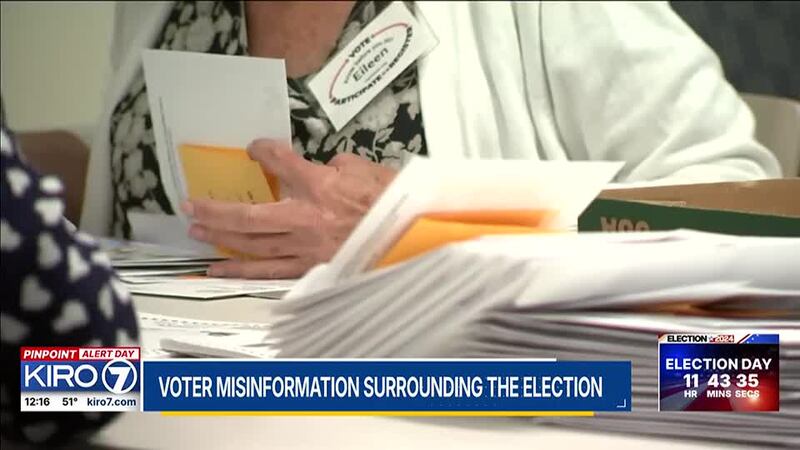Widespread misinformation around this year’s elections continues to concern officials nationwide.
Some national, nonpartisan groups have been working to debunk false narratives all year. They’re also using new methods to combat emerging technologies and incorrect information.
On social media, the nonpartisan League of Women Voters has been posting videos about the voting to try to correct false rumors about the overall process. The group also runs Vote411, an online voter guide platform, and relies on support from members on the ground.
“Here’s the troubles that we encountered. here the things that went really smooth, just so people have an idea of what that what they may encounter as they are trying to vote,” said Celina Stewart, CEO for the League of Women Voters of the United States.
Stewart said this year, she’s also worried about the use of AI deepfakes to spread those inaccurate messages.
“We have dedicated staff to really be looking at the news and things that are coming out to see where the mis and disinformation is happening, and trying to combat that with accurate information,” said Stewart.
Earlier this year, Senators held a hearing about cracking down on AI deepfakes in elections.
“Artificial intelligence is already being used to interfere with our elections, sowing lies about candidates and suppressing the vote,” said Sen. Richard Blumenthal, (D) Connecticut.
At least 20 states have passed laws regulating deepfake use around elections, but Congress has yet to vote on the issue.
“Are we going to have to have an electoral disaster before Congress realizes gee, we should really do something to give the public some sense of safety, some certainty that what they’re seeing and hearing is actually real,” said Sen. Josh Hawley, (R) Missouri.
At local polling places, election officials continue battling the perception of voter fraud, ever since former President Donald Trump claimed the 2020 election was stolen from him. Despite no evidence of widespread fraud or rigged voting machines four years ago, many local administrators have increased transparency at their offices to combat misinformation.
“With this new facility, you can actually come in and watch every single ballot be counted. You can watch results be uploaded,” said Derek Bowens, director of elections for Durham County, NC. “Of course, this could happen before. The difference now is we have transparency glass, where workers are protected, but people can see how full visibility as to the work that as to the work that’s being done there.”
Bowens said his team had residents come in to watch the preparation of absentee ballots earlier this year.
“And they were very surprised that that process was open that it was bipartisan. Our workers are identified with party vests, so you can see that you have bipartisanship handling balance,” said Bowens.
Some election officials say they’ve also been relying heavily on their communications teams to help get accurate information out to voters.
“We are the official information. If you have a question about elections, call your local office, get the real information, get the correct answer, and just rely on your local elections officials to supply you with accurate information,” said Zach Manifold, elections supervisor for Gwinnett County, GA.
©2024 Cox Media Group








